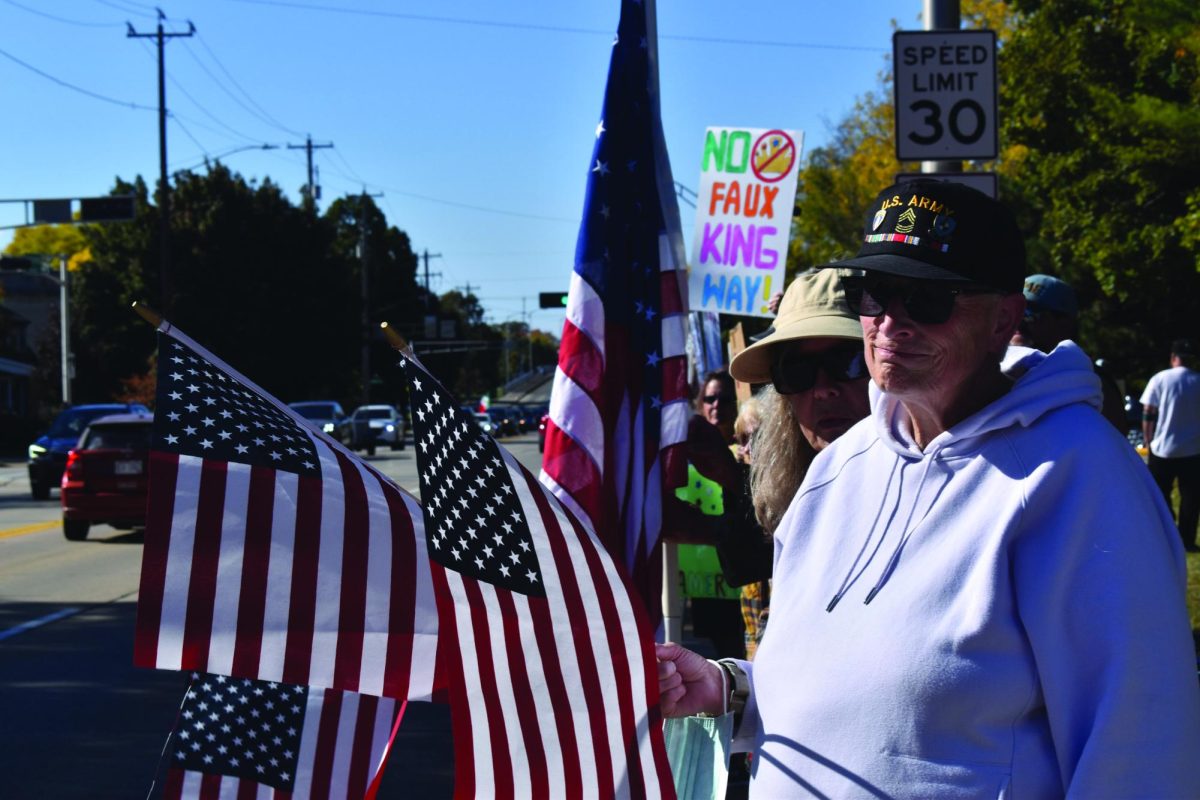Cendi Trujillo Tena and Cristal Tinajero, from the YES branch of Voces De La Frontera, spoke at a Center of Equity event on undocumented immigrants in the U.S. and the threats they face involving deportation last Thursday at UW Oshkosh.
Trujillo and Tinajero spoke about their own stories and the issues they deal with regarding undocumented immigrants and how it has affected their lives. Their stories included having family members deported, growing up and issues attending college.
They also went on to inform attendees on different problems undocumented immigrants face and how anyone can get involved and help.
Trujillo said that resource centers are really important on campuses for students of color and immigrant students and that they make universities easier to attend for those students.
“I know that this is a university where people have different beliefs and opinions, but it’s okay for me to like coffee and my peer to like tea, but it’s not okay for my peers to think that a certain group of people are superior to others,” Trujillo said. “When your beliefs are basically oppression to others, you lose credibility. So we need to be realistic and be good people to each other.”
Chair of Educating the Campus Action Team for the Inclusive Excellence Council Sarah De Armond said the council had become aware of concerns on campus surrounding Deferred Actions for Childhood Arrivals (DACA) and student immigrants who feel less safe and secure, so they found an event and speakers that spoke on that topic.
“I was like many of the students that we have here on campus,” De Armond said. “I was from a small town in Michigan, and I was fortunate enough through my family to have been exposed to a variety of different things. But I think my college experience really educated me more on diversity and inclusion, and I think I learned the most from some of the opportunities I had from study abroad and the alternative breaks that I had, and we can’t ensure that every student is going to have those opportunities.
However, I think any time we can allow students to hear about what it is to walk a day in someone else’s shoes, I think that that’s a benefit.”
Senior Benito Cruz-Sanchez, president of the Student Organization of Latinos, said that UWO is a heavily white institution where a lot of people from small areas come not knowing the stories of individuals that are in these circumstances.
“It’s when people really listen to personal stories that they can put aside political statements that are always said in the news, or anything else,” Cruz-Sanchez said. “Television separates individuals from things. Like, you don’t listen to specific stories as personally as someone in the same room as you.”
Cruz-Sanchez said he attended an event the night before Trujillo and Tinajero’s talk which also was held by the Center of Equity where he discussed the definition of diversity.
“So what I can connect from last night to today is that my definition of diversity is the sharing of stories,” Cruz-Sanchez said. “Because you and I or anyone else, no two people, have the same exact story.”
De Armond agreed that the stories were the most striking part of the event.
“It’s terrible to think about what it would be to be separated from a family member, and I think that kind of story really has an emotional impact on people,” De Armond said.








